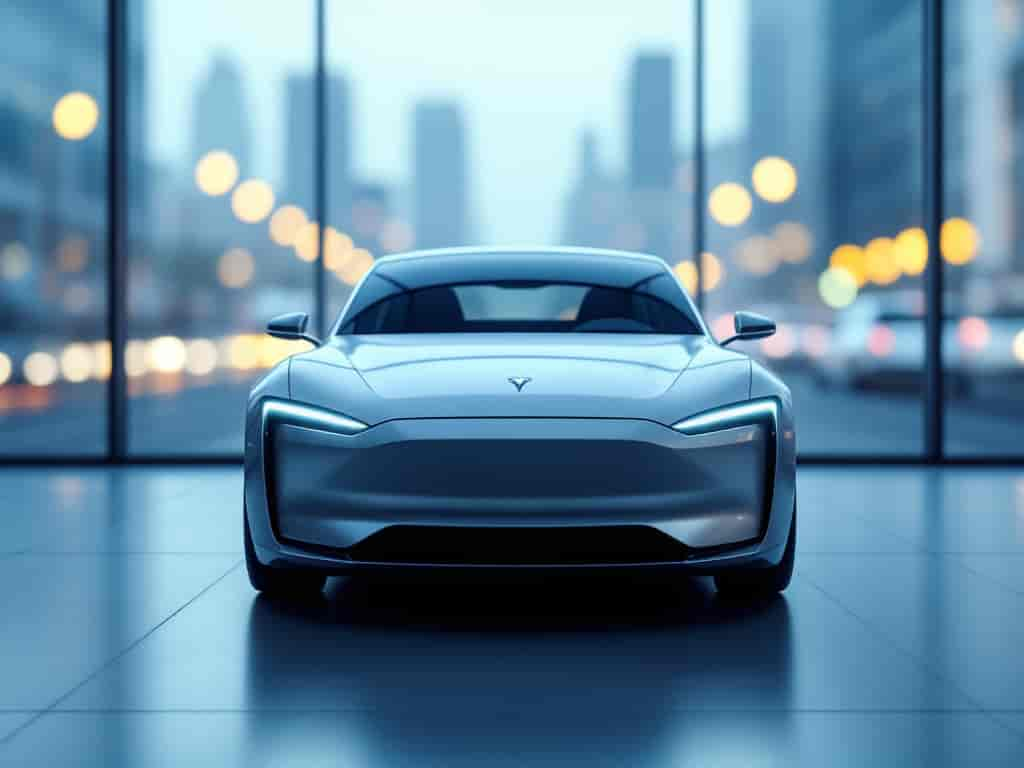Top Electric Vehicle Myths Debunked
Ellie Moore

Photo: Top Electric Vehicle Myths Debunked
Top Electric Vehicle Myths Debunked
Electric vehicles (EVs) are no longer just a futuristic concept they’ve become a tangible option for consumers looking to reduce their carbon footprint, save on fuel costs, and embrace new technology. However, despite their growing popularity, numerous myths about electric vehicles still persist. These misconceptions often prevent potential buyers from considering an EV as a viable option.
In this article, we’ll take a deep dive into some of the most common electric vehicle myths and debunk them with facts, statistics, and real-life examples. Whether you’re an EV skeptic or simply curious, this guide will give you a clearer understanding of what electric vehicles are truly about.
Myth 1: Electric Vehicles Have a Limited Driving Range
The Truth: Modern EVs Can Go the Distance
One of the most persistent myths surrounding electric vehicles is that they can’t travel very far on a single charge. This myth stems from the early days of EVs when battery technology was not as advanced as it is today.
Reality Check: Today's electric vehicles boast impressive ranges, often exceeding 200 to 300 miles on a full charge. For example, the Tesla Model 3 Long Range can travel up to 358 miles on a single charge, and the Ford Mustang Mach-E offers between 230 and 312 miles depending on the model.
Charging infrastructure is also rapidly expanding, with thousands of charging stations popping up across the country. So, whether you’re commuting to work or planning a road trip, most EV drivers won’t find range to be a significant issue anymore.
Charging While on the Go
If you're concerned about finding a charging station during long trips, don’t fret. Many EVs now come with features that help you locate charging stations along your route. Plus, public charging networks like Tesla Superchargers can recharge a battery to 80% in under 30 minutes, making long-distance travel more convenient than ever.
Myth 2: Electric Vehicles Are Too Expensive
The Truth: EVs Are More Affordable Than You Think
While it’s true that electric vehicles can have a higher upfront cost compared to traditional gasoline-powered cars, the myth that they are unaffordable is becoming increasingly outdated. In fact, over time, the total cost of ownership for an EV may be lower than that of a gasoline car.
Reality Check: The average price of an electric vehicle has been steadily decreasing as technology improves and economies of scale kick in. According to recent data, the average cost of an EV in the U.S. was around $55,000 in 2023, but this is not the case for all models. Affordable EVs like the Nissan Leaf, Chevy Bolt, and Hyundai Kona EV offer starting prices under $40,000.
Financial Incentives
Government incentives and tax credits can significantly reduce the upfront cost of purchasing an electric vehicle. For example, the U.S. federal tax credit offers up to $7,500 off the price of a new electric vehicle. Some states also provide additional rebates, tax breaks, and incentives, which can make EVs much more affordable.
Long-Term Savings
Beyond the purchase price, EVs can also save you money in the long run. They have fewer moving parts than traditional vehicles, meaning lower maintenance costs. With electricity being cheaper than gasoline, your cost per mile is significantly lower. EV owners can expect to save hundreds or even thousands of dollars in fuel costs annually.
Myth 3: Electric Vehicles Are Bad for the Environment
The Truth: EVs Are a Cleaner Choice
Some people argue that electric vehicles are just as bad for the environment as gasoline cars because of the emissions created during the manufacturing process, particularly the mining of materials for batteries. While it's true that EVs require more energy to produce, especially in the production of their batteries, their overall environmental impact is still much lower than that of conventional vehicles.
Reality Check: Over their lifetime, EVs produce significantly fewer emissions than gasoline-powered vehicles. According to the Union of Concerned Scientists, an EV generates half the emissions of a comparable gasoline car even when accounting for the energy used to make the car and charge the battery. As more renewable energy sources are used to generate electricity, the carbon footprint of EVs will continue to decrease.
A Greener Future
The energy used to charge EVs is also becoming cleaner. More and more utilities are shifting to renewable sources such as solar, wind, and hydroelectric power. This means that, in the future, driving an electric vehicle could result in near-zero emissions, contributing to a cleaner, more sustainable planet.
Myth 4: EVs Take Too Long to Charge
The Truth: Fast Charging Is Becoming the Norm
Early models of electric vehicles were slow to charge, with some requiring overnight recharging to get a full battery. However, fast-charging technology has come a long way, significantly reducing the amount of time it takes to recharge an EV.
Reality Check: Many new EVs come equipped with fast-charging capabilities. Tesla Superchargers, for example, can provide up to 170 miles of range in just 30 minutes. Other networks, such as Electrify America and ChargePoint, are rapidly expanding their fast-charging infrastructure, making it easier for drivers to top off their battery quickly while on the go.
Charging at Home
For daily use, most EV owners find it more convenient to charge their vehicles at home overnight, much like a smartphone. With a Level 2 home charger, you can get a full charge in about 8 hours, ensuring your car is ready to go each morning. This means you won’t have to rely on public charging stations for everyday use.
Myth 5: Electric Vehicles Are Not as Powerful as Gas Cars
The Truth: EVs Offer Instant Torque and Impressive Performance
Another myth is that electric vehicles lack the power and performance of traditional gasoline cars. Many assume that electric motors are too small or weak to deliver the acceleration and top speed that people desire.
Reality Check: Electric vehicles actually offer exceptional performance thanks to their electric motors’ instant torque delivery. This means that EVs can accelerate quickly from a standstill. Take the Tesla Model S Plaid, for instance it can accelerate from 0 to 60 mph in less than 2 seconds, making it one of the fastest production cars on the planet.
Additionally, electric vehicles like the Porsche Taycan and the Audi e-Tron GT prove that you don’t have to sacrifice performance for sustainability. Whether you're looking for a thrilling ride or a practical daily driver, there are EVs available that can meet your needs.
Myth 6: EVs Are Not Safe
The Truth: EVs Are Subject to Strict Safety Standards
Safety is a top priority for electric vehicle manufacturers, and modern EVs are designed to meet the same stringent safety standards as their gasoline counterparts.
Reality Check: In fact, many EVs have received top safety ratings from organizations like the National Highway Traffic Safety Administration (NHTSA) and the Insurance Institute for Highway Safety (IIHS). The Tesla Model 3, for example, has earned a 5-star safety rating in every category from NHTSA.
The low center of gravity in electric vehicles thanks to the heavy batteries mounted low in the chassis makes them less likely to roll over in the event of a crash. Plus, EVs typically come equipped with advanced safety features like automatic emergency braking, lane assist, and collision warning.
Conclusion: Embrace the Future of Transportation
Electric vehicles are not just a passing trend they are a revolutionary force in the automotive industry. By debunking these common myths, we hope to help you make a more informed decision about whether an EV is right for you.
From lower operating costs to better performance and a cleaner environment, the advantages of electric vehicles are clear. If you’re still hesitant about making the switch, we encourage you to test drive an EV and experience the benefits for yourself.
Are you ready to make the move to electric? Share your thoughts in the comments below or explore more articles to learn about the future of EVs and how they can fit into your lifestyle.
Frequently Asked Questions (FAQ)
1. How long do EV batteries last?
Most EV batteries last between 8-15 years, with many manufacturers offering warranties of 8 years or more on their batteries.
2. Are EVs suitable for long road trips?
Yes, thanks to the expanding network of fast chargers, EVs are becoming more practical for long-distance travel.
3. Do electric vehicles require a lot of maintenance?
No, electric vehicles have fewer moving parts than traditional cars, which means less maintenance overall.
4. Can I install a home charger for my EV?
Yes, many EV owners install a Level 2 home charger, which allows for faster charging overnight.
5. Are EVs safe in extreme weather conditions?
Yes, electric vehicles are safe to drive in various weather conditions, and their batteries are designed to handle both cold and hot temperatures effectively.
Finance & Investment
View All
April 18, 2025
Prodigy Finance Study Loan ExplainedCraft expert SEO content to rank higher & build authority. Master E-E-A-T and deliver genuine value for online success.
Ellie Moore

October 6, 2025
Baby Boy Names Meaning WealthGo beyond keywords! Create expert SEO content that ranks high, satisfies E-E-A-T, and genuinely helps your audience. Get actionable strategies.
Ellie Moore

November 3, 2025
What You Can Do with a BA in FinanceGo beyond keywords! Learn to craft expert SEO content that builds authority, satisfies E-E-A-T, and dominates search rankings for lasting success.
Ellie Moore

March 3, 2025
NYS Taxation and Finance UpdatesMaster expert SEO content! Go beyond keywords to understand search intent, build E-E-A-T, and deliver unparalleled value to rank higher and engage your audience...
Ellie Moore

February 15, 2025
Personal Finance Tips That WorkCraft expert SEO content! Go beyond keywords to master search intent & build authority. Rank higher, engage readers, and drive results with this guide.
Ellie Moore

January 27, 2025
Smart Finance Ideas for 2025Master expert SEO content! Learn how E-E-A-T, quality, and user-first strategies boost rankings, build authority, and drive online success.
Ellie Moore
Insurance
View AllUnlock optimal health & financial security with Essential Ambetter Insurance Plans. Your guide to comprehensive coverage, benefits, and peace of mind.
Ellie Moore
Concerned about financial risks? Discover how top-rated auto & renters insurance offers optimal protection, savings, and peace of mind for your assets.
Ellie Moore
Find optimal premium car insurance quotes online. This guide helps policyholders, agents & risk managers compare rates for robust, high-value coverage.
Ellie Moore
Stay safe with these tips to identify and avoid common insurance scams. Protect yourself from fraud and make informed decisions.
Ellie Moore
Switching insurance? Learn key considerations to find the best new provider while avoiding coverage gaps.
Ellie Moore
Unlock peace of mind with Ultimate Nationwide Insurance Plans. This guide helps you secure comprehensive protection for your assets, health, and financial futur...
Ellie Moore
Education
View AllMOOCs are transforming the landscape of higher education. Learn how massive open online courses are making learning accessible to all.
Read MoreLearn how gamification is transforming modern classrooms. Explore fun, interactive strategies that boost engagement and learning outcomes.
Read MoreUnderstand dyslexia and discover effective ways to support dyslexic students in the classroom. Learn proven strategies to improve learning outcomes.
Read MoreCompetency-based education focuses on mastery over seat time. Learn how this model is reshaping how we measure student success.
Read MoreEthics in education is vital for balanced learning. Learn how to teach morality alongside knowledge transfer in today’s classrooms.
Read MoreExplore how emotional intelligence impacts academic performance. Learn strategies to help students develop emotional skills for better learning outcomes.
Read MorePopular Post 🔥
View All
1
2
3
4
5
6
7
8
9
10
Health





Automotive
View All
July 24, 2025
Benefits Of Using An Automotive Steam Cleaner
Unlock a pristine, healthier car! Discover how automotive steam cleaners deep clean & sanitize, eradicating germs, mold, and allergens for a truly hygienic ride...

July 18, 2025
Magnetic Automotive Accessories For Your Vehicle
Transform your car with magnetic accessories! Enjoy effortless convenience, versatility & sleek design for phone mounts, organization & more. Simplify your driv...

August 4, 2025
Automotivo Bibi Fogosa Lyrics Explained In English
Decode "Automotivo Bibi Fogosa" lyrics in English. Discover how this explicit Brazilian funk hit became a global car culture sensation.

August 25, 2025
KC Automotive Trusted Experts Near You
Seeking trusted auto repair in KC? Our guide connects you with reliable experts for safe, long-lasting car care & peace of mind.

September 5, 2025
Automotive Undercoating To Protect Your Car
Safeguard your car from rust & corrosion! Automotive undercoating acts as an invisible shield, extending its lifespan and preserving its value.

August 28, 2025
Prestige Automotive Care With A Touch Of Class
Prestige Automotive Care: Meticulous detailing & specialized techniques preserve your luxury vehicle's soul & value. Elevate car care to an art.


















